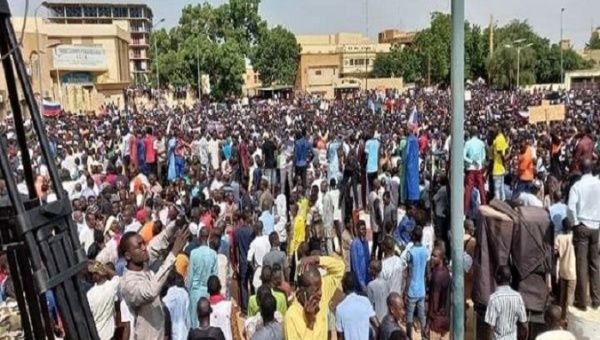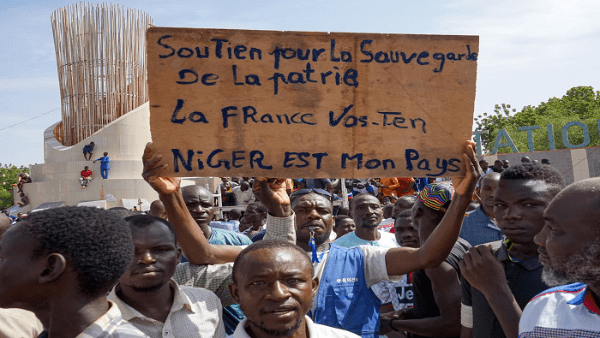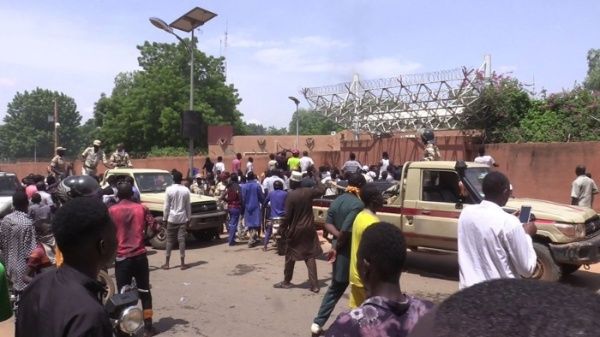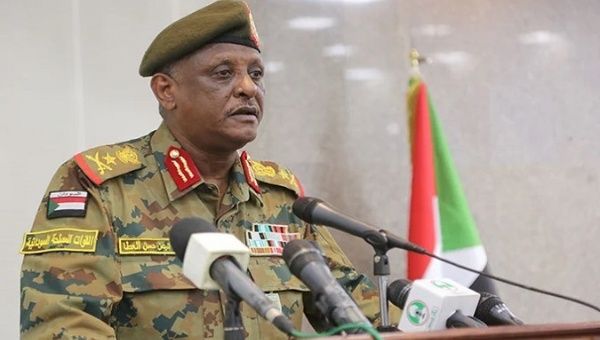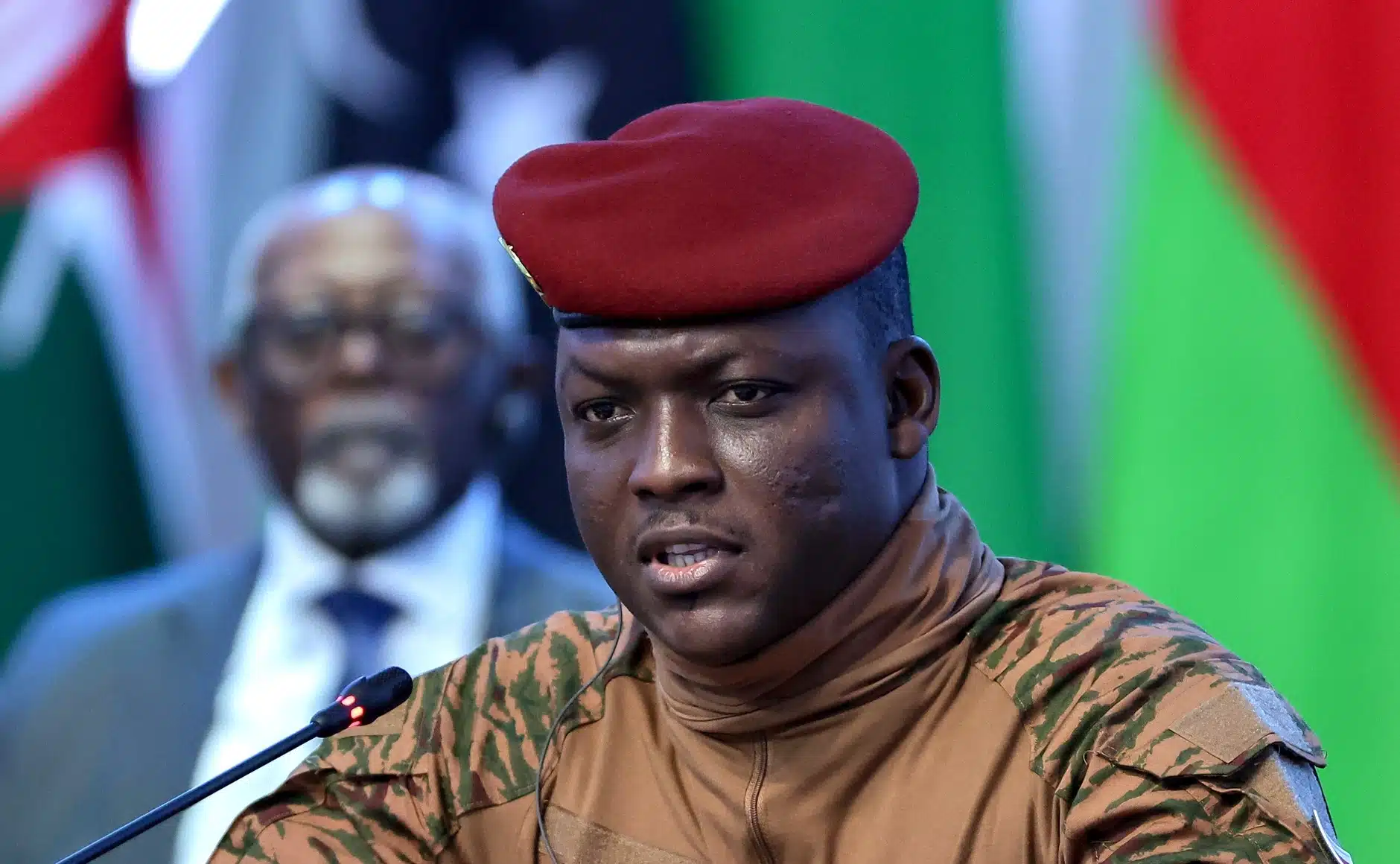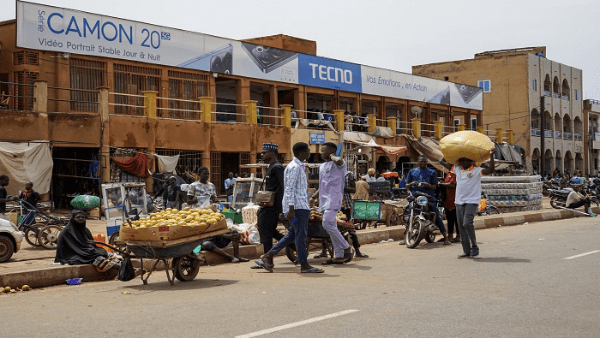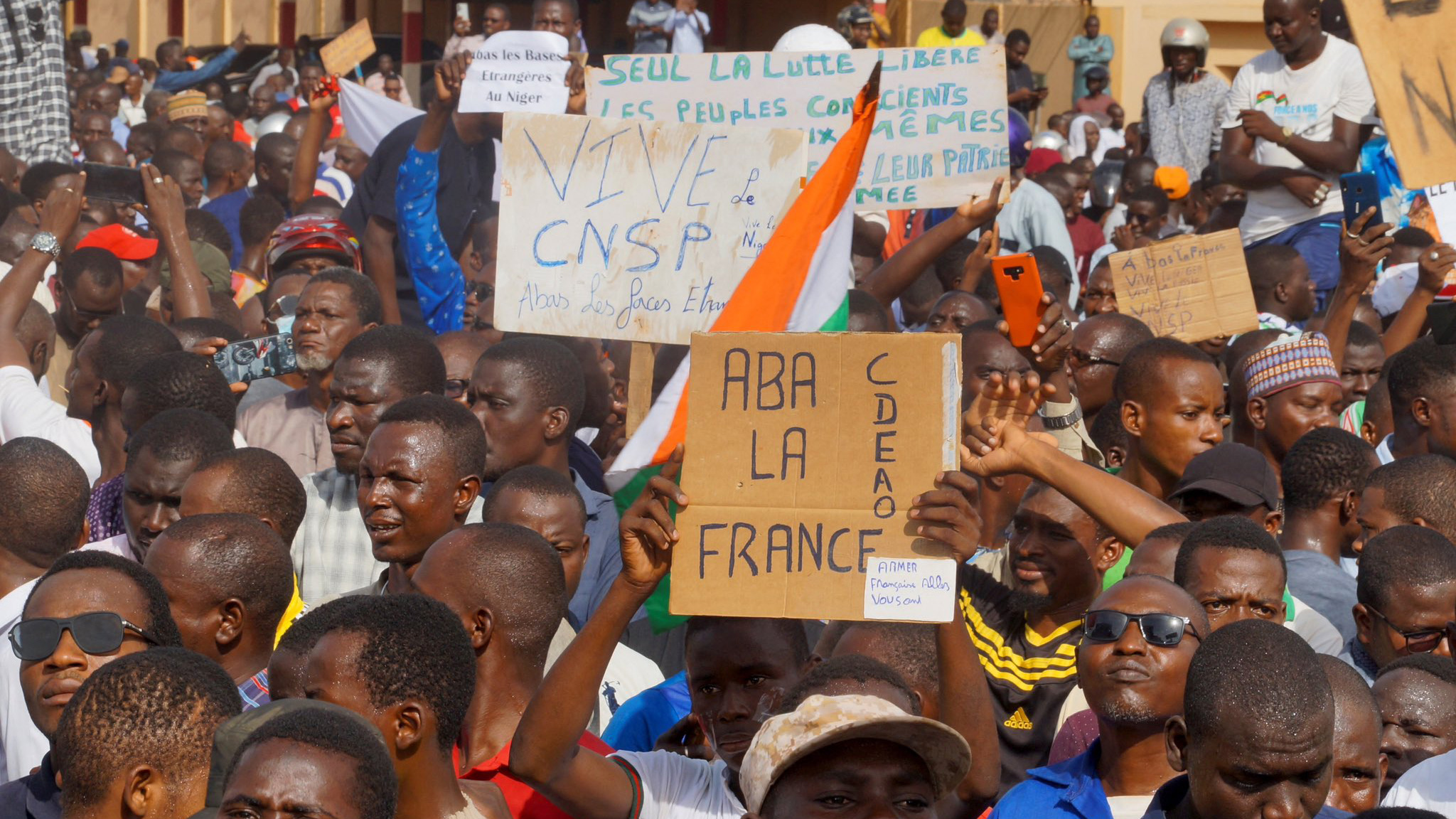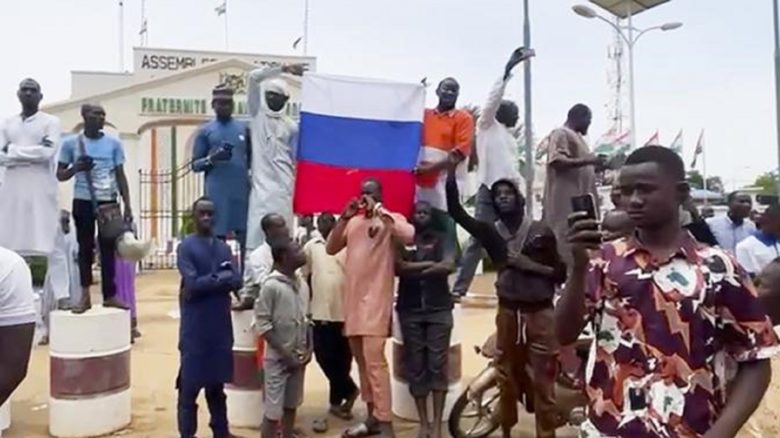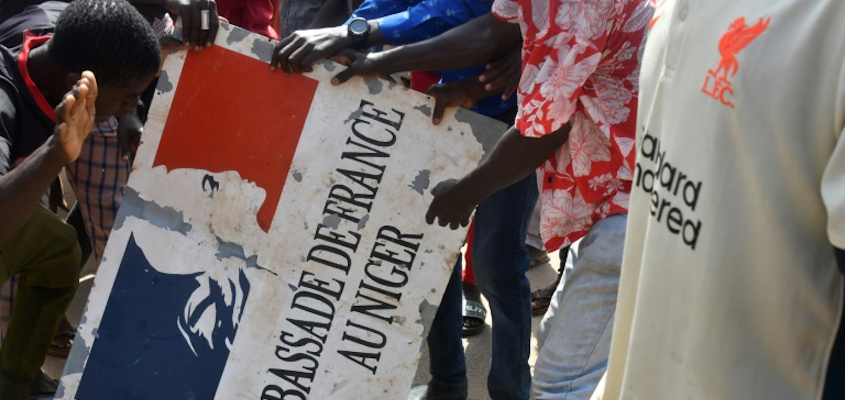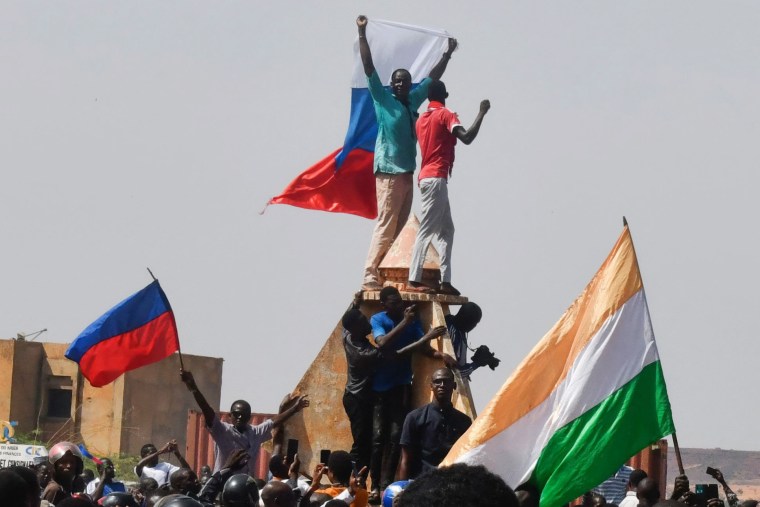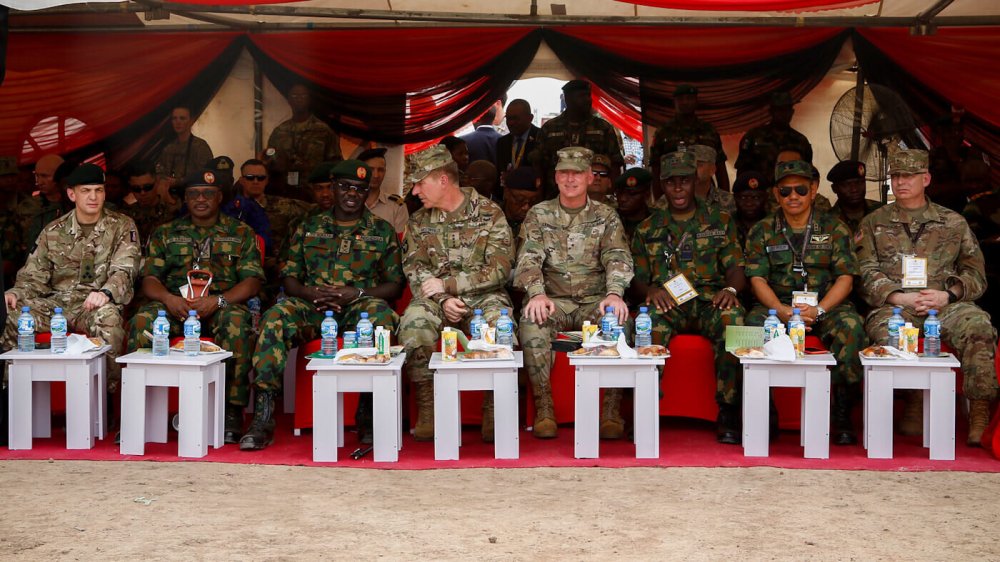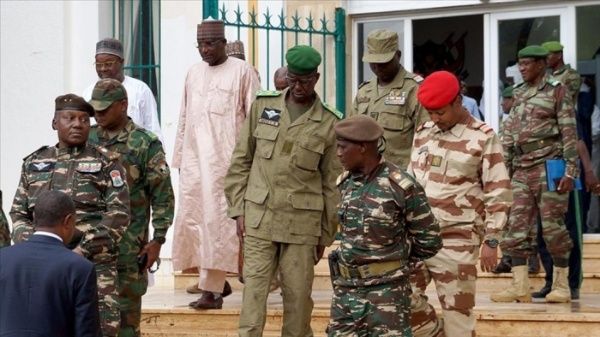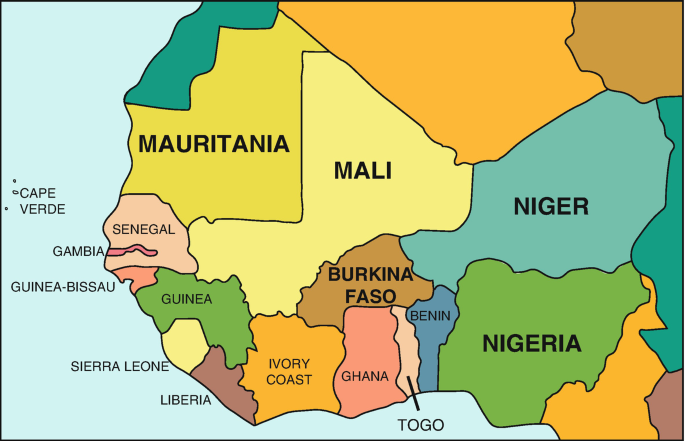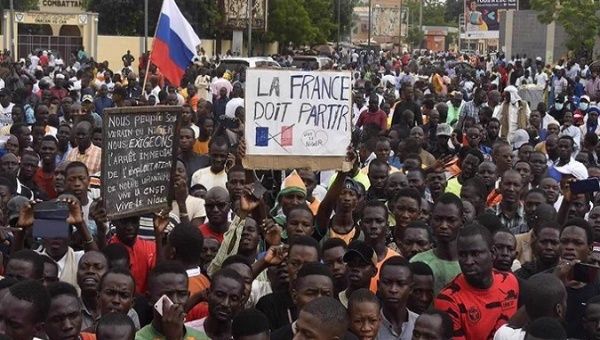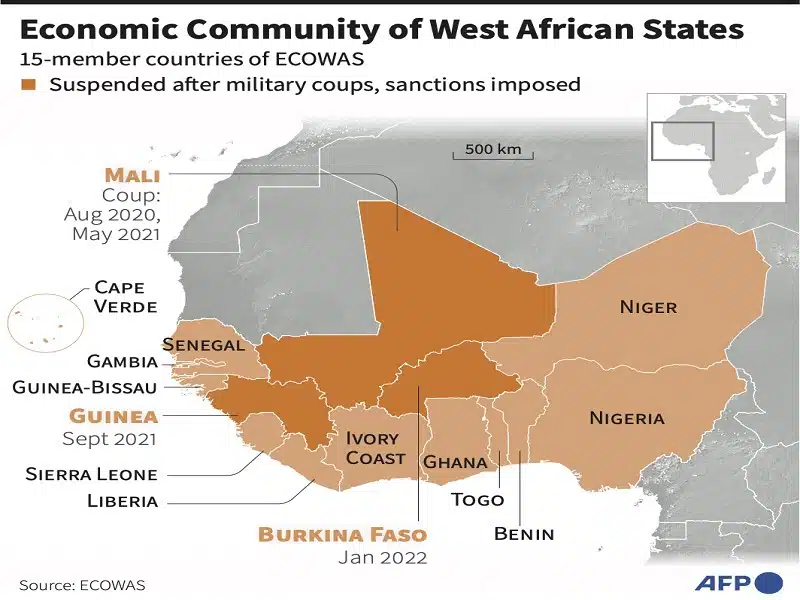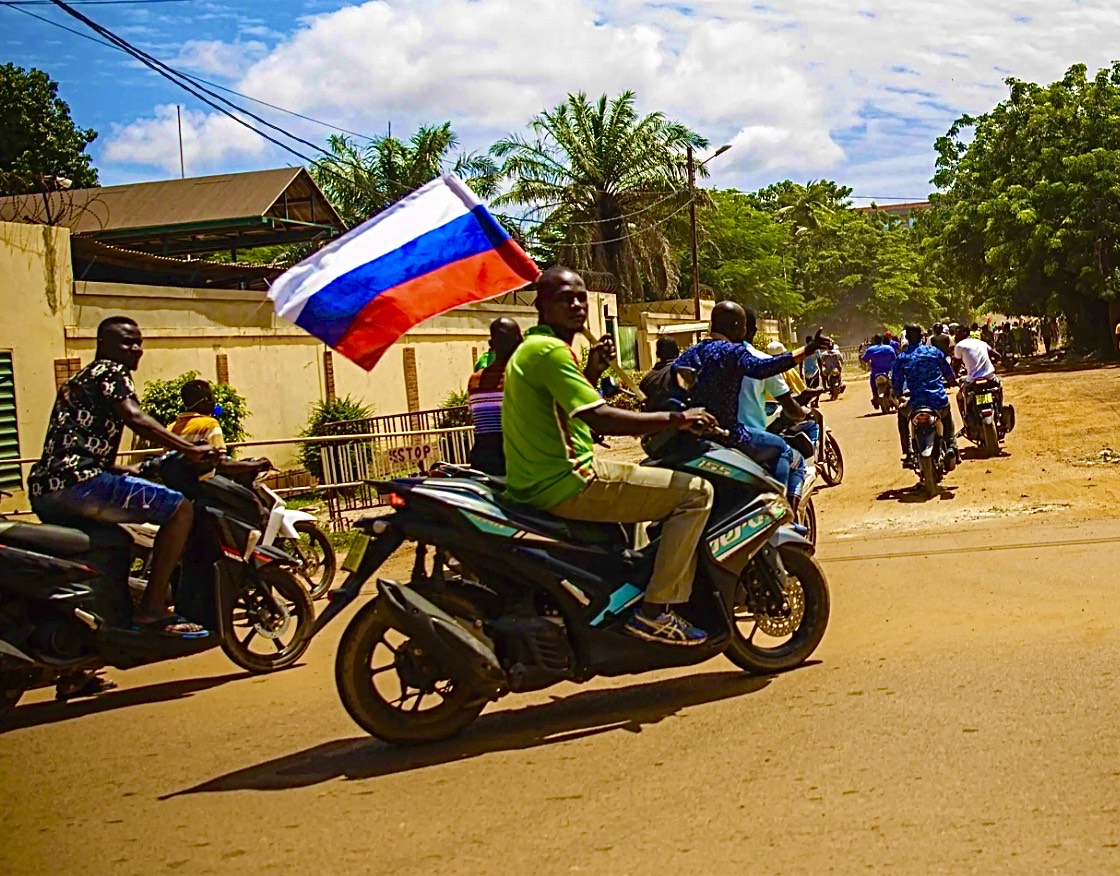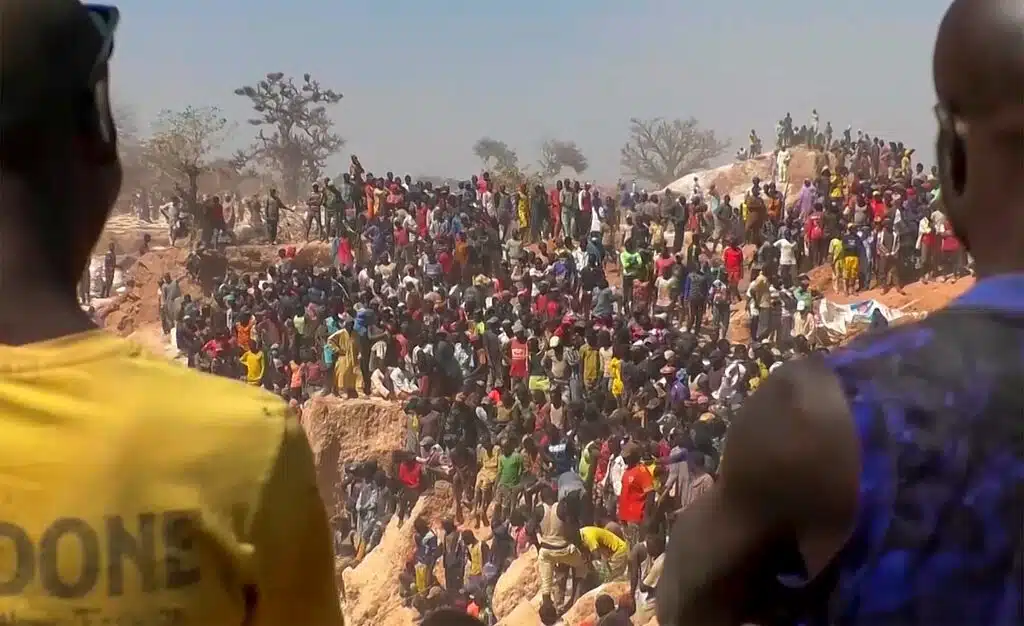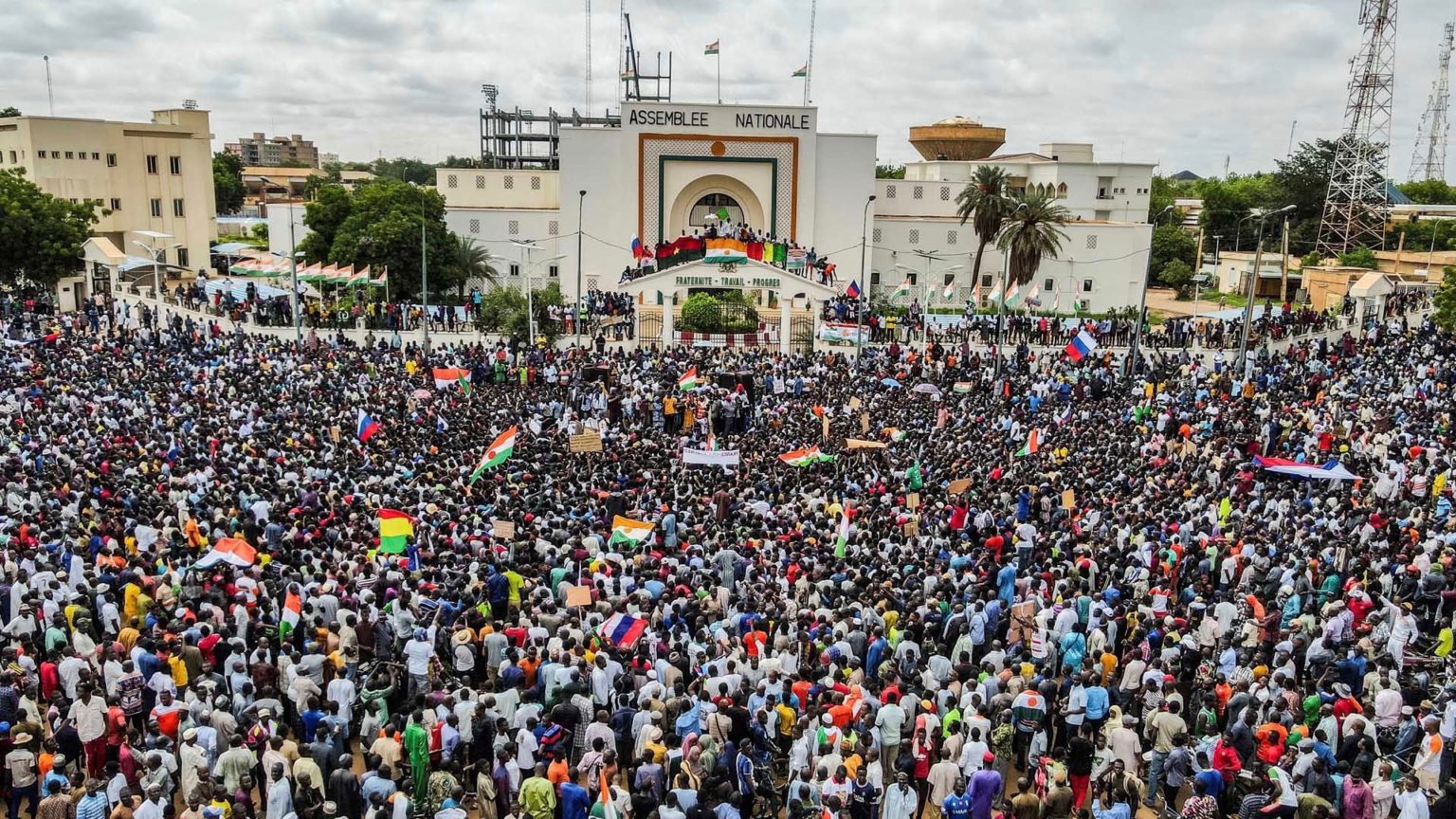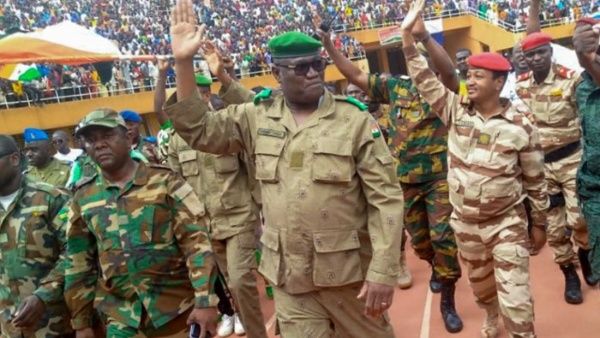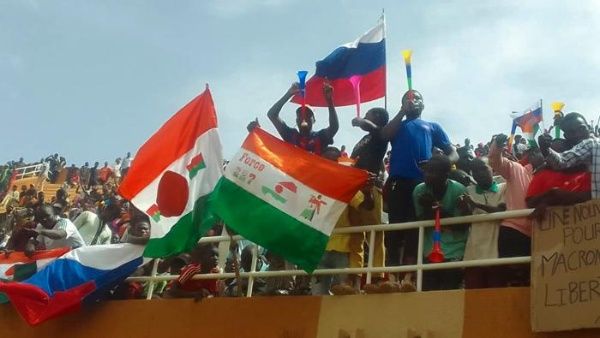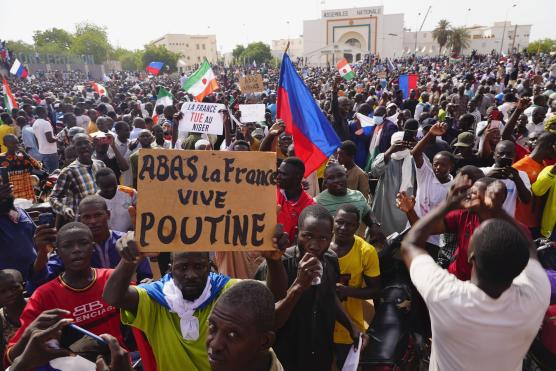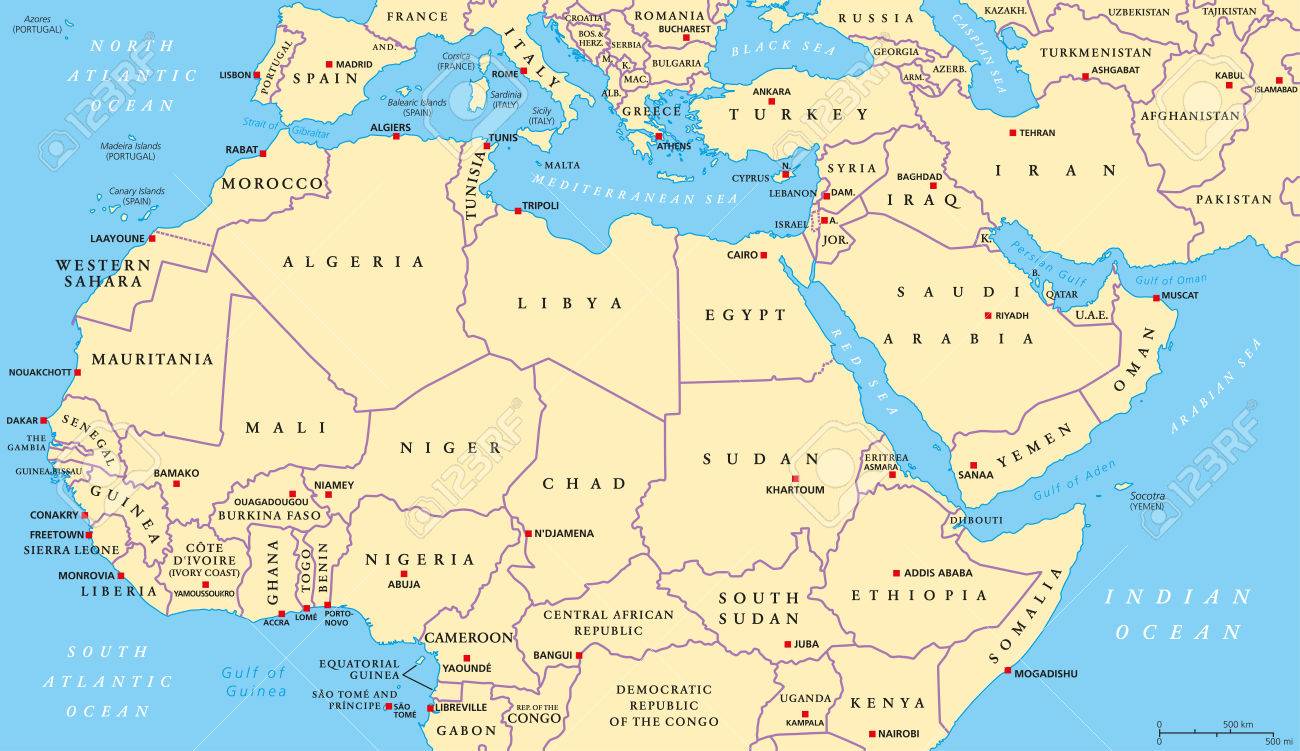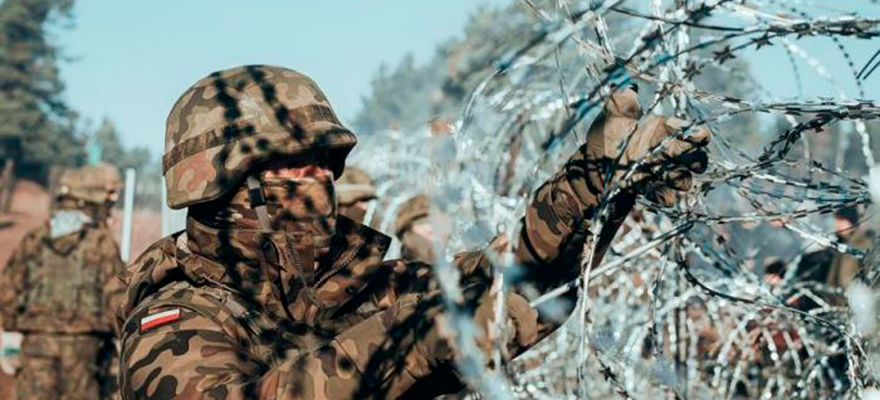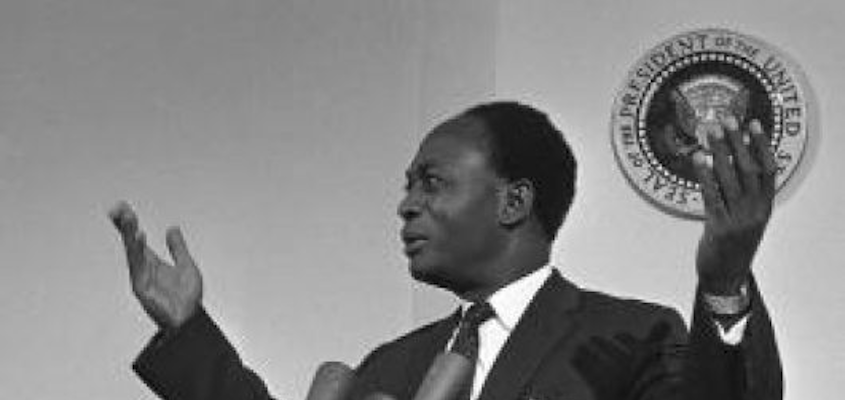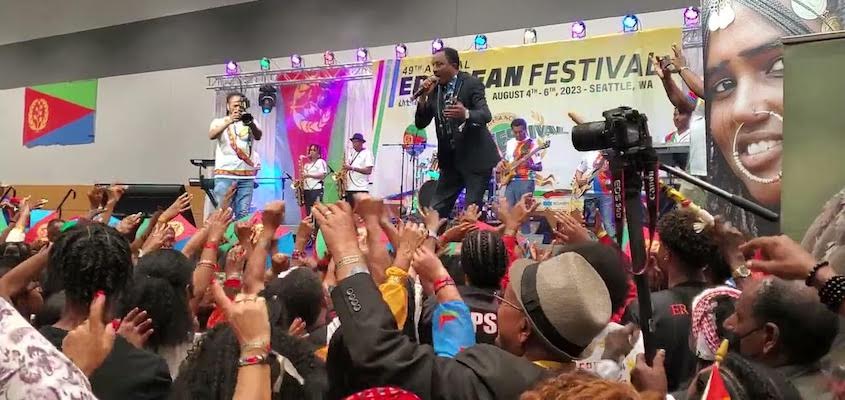Posted by INTERNATIONALIST 360° on JULY 29, 2023

We, the Heads of State and Government of the Russian Federation and African States recognized by the United Nations (UN) (hereinafter also referred to as the Russian Federation and African States), and representatives of the African Union and Africa’s leading integration organizations, gathered on 28 July 2023 in Saint Petersburg (Russian Federation) to participate in the Second Russia–Africa Summit,
Reaffirming the principles and objectives enshrined in the Declaration of the First Russia–Africa Summit (Sochi, 24 October 2019), which laid the strategic foundation for our relations in the 21st century,
Building on the historical and time-tested friendly ties between the Russian Federation and African States, mutual respect and trust, traditions of joint struggle for the eradication of colonialism and the establishment of independence of African States,
Welcoming the growing importance of African States and the African Union as the leading continental organization in international affairs, which reflects the increasing global role and influence of Africa as an essential pillar of the multipolar world,
Reaffirming the need to jointly oppose neo-colonialism, imposing conditions and double standards while not allowing these practices to deprive States and peoples of the right to make sovereign choices of their development paths,
Committed to the fundamental principles and purposes of the United Nations Charter, subscribing to safeguarding and upholding international law and emphasizing the need for the adherence thereto by all States,
Confirming the shared responsibility of the Russian Federation and African States for shaping a just and stable world order based on the principles of sovereign equality of States, non-interference in their internal affairs, respect for sovereignty, territorial integrity and the right of all peoples to self-determination as provided, inter alia, by UN General Assembly Resolution 1514 (XV) of 14 December 1960, as well as the need to preserve national identity and national resources, cultural and civilizational diversity and to protect traditional values,
Recognizing the central role of sovereign States in decision-making, including in the maintenance of international peace and security, while respecting the diversity of value systems of States and nations within multilateral fora,
Welcoming the readiness of the Russian Federation to continue its consistent support for strengthening the national sovereignty of African States as well as all their security dimensions,
Sharing and supporting the aspirations of African States as enshrined in the African Union’s Agenda 2063: The Africa We Want and the 2030 Agenda for Sustainable Development adopted by the UN General Assembly in its Resolution 70/1 of 25 September 2015,
Expressing deep concern over the challenges related to global food security, including the rise in food and fertilizer prices, as well as the disruption of international supply chains, which disproportionately impact the African continent,
Confirming the willingness to reconcile approaches to energy cooperation issues, with a focus on finding pragmatic, efficient, consensual and sustainable solutions to ensure energy security, access to modern and clean energy sources, eradicate energy poverty and overcome energy shortage,
Welcoming the determination of the Russian Federation to continue providing assistance to African States in order to address issues related to the provision of food, fertilizers and energy resources, as well as carry out international development assistance projects,
Opposing aggressive nationalism, neo-Nazism, neo-fascism, Afrophobia, Russophobia, all forms of racism and racial discrimination as well as discrimination based on religion, belief or origin, xenophobia and related intolerance against in particular but not limited to migrants, refugees, asylum-seekers,
Confirming the importance of establishing and developing effective channels for interaction between integration organizations in which the Russian Federation and the African continent participate,
Acting in accordance with the national legislations of the Russian Federation and African States, have agreed as follows:
Mechanism for Dialogue Partnership
1. Strengthen the role of the Russia-Africa Partnership Forum as the cornerstone of Russia-Africa multilateral cooperation that implements the decisions of the Summit.
2. In the period between Summits, hold annual political consultations between the Minister of Foreign Affairs of the Russian Federation and the Chairperson of the African Union Commission, as well as between Ministers of Foreign Affairs of the Russian Federation and African Statesand the African Union Commission, in addition to the existing format of dialogue with the present, former and future Presidencies of the African Union.
3. Initiate the creation of a permanent top-level Russia-Africa dialogue mechanism to operate within the African Union Multilateral Partnership framework, in order to coordinate efforts against terrorism and extremism, including violent extremism conducive to terrorism, address environmental, food, and information security issues, participate jointly in African Union programmes on developing the architecture of peace, stability and security.
Political and Legal Cooperation
4. Enhance equal and mutually beneficial cooperation between the Russian Federation and African States in order to contribute tо the establishment of a more just, balanced and stable multipolar world order, firmly opposing all types of international confrontation in the African continent.
5. Contribute to further promoting the central coordinating role of the United Nations as the main global multilateral mechanism for aligning the interests of United Nations Member States and their actions to achieve the goals of the UN Charter as well as to ensure respect for the universally recognized principles and norms of international law enshrined therein.
6. Coordinate, within the United Nations Security Council, approaches towards sanctions policies with regard to African States, including with a view to further easing and lifting restrictive measures that are no longer relevant.
7. Work together to counter the use of illegitimate unilateral tools and methods, including the application of coercive measures in circumvention of the United UN Council and their extraterritorial application, as well as the imposition of approaches that harm primarily the most vulnerable and undermine international food and energy security.
8. Cooperate to achieve the UN Security Council reform taking into account the geopolitical realities and the Common African Position based on the 2005 Ezulwini Consensus and Sirte Declaration with a view to strengthening the representation of Africa in the Council and addressing the historical injustice against it.
9. Counter the imposition in international organizations, primarily in the UN, of dividing lines that hinder the effective search for solutions to pressing issues on the UN agenda, including those that affect vital interests of African States.
10. Strengthen coordination between the permanent missions to the United Nations of the Russian Federation and African States, including African non-permanent members of the United Nations Security Council, to jointly promote common interests.
11. Strengthen cooperation within other international organizations and consider expanding the practice of providing mutual support at elections to their governing bodies and in decision-making on issues of importance for the Russian Federation and African States in accordance with their national interests and international obligations.
12. Contribute to the effectiveness of secretariats of international and regional organizations underlining the importance of avoiding politicization of their activities and work together to ensure that States that host the headquarters of international organizations comply fully with their obligations so that representatives of member states can freely exercise their powers.
13. Help enhance the BRICS–Africa partnership and establish the Collective Security Treaty Organization–African Union dialogue, as well as the Shanghai Cooperation Organization–African Union dialogue.
14. Contribute to completing the decolonization process in Africa and work to ensure compensation for the economic and humanitarian damage inflicted on African States by colonial policies, including the restitution of cultural property displaced in the process of colonial plundering.
15. Work together to counter manifestations of neo-colonial policies that aim to undermine the sovereignty of States, deprive them of the freedom to make their own decisions, and plunder their natural resources.
16. Step up efforts to combat contemporary forms of racism and racial discrimination, as well as discrimination based on religion, belief or origin, including xenophobia and related intolerance, aggressive nationalism, neo-Nazism and neo-fascism, and resolve to cooperate together to achieve the full implementation of the 2001 Durban Declaration and Progamme of Action (DDPA). Emphasize the increasing relevance of joint actions to combat these forms of intolerance in the context of overcoming the consequences of colonialism, slavery, the slave trade, including the trans-Atlantic slave trade, which were recognized an appalling tragedy in the history of humanity. Counter the dehumanization, including in the media environment, of entire nations, the cancel culture with regard to their civilizational heritage, as well as any kind of cultural appropriation, including prohibition of the use of the mother tongue.
17. Adhere to the principles of international law, as reflected in the UN Charter and the Declaration adopted on 24 October 1970 on Principles of International Law concerning Friendly Relations and Cooperation among States in accordance with the United Nations Charter.
18. Consolidate the efforts of the Russian Federation and African States, which advocate for restoring the universal respect for international law and strengthening its role as the foundation of international relations. Resist attempts to substitute, revise, or arbitrarily interpret the principles of international law.
19. Oppose initiatives and concepts aimed at creating alternatives to international law, work together to promote stable and just international order based on the universally recognized principles and norms of international law enshrined in the UN Charter.
20. Strongly believe that the principle of sovereign equality of States is crucial for the stability of international relations.
21. Uphold all the principles of the UN Charter including its Article 2 and Article 51.
22. Adhere to the principle of non-interference in the internal affairs of States and oppose the extraterritorial application by States of their national laws in violation of international law.
23. Use peaceful diplomatic means, such as dialogue, negotiations, consultations, mediation, and good offices, to resolve international disputes and conflicts, settle them on the basis of mutual respect, compromise, and the balance of legitimate interests.
24. Contribute to improving the mechanism for applying international sanctions based on the exclusive competence of the UN Security Council to impose such measures and the need to ensure their effectiveness in maintaining international peace and security and preventing the deterioration of the humanitarian situation.
25. Oppose the application of illegitimate unilateral restrictive measures, including secondary ones, as well as the practice of freezing sovereign foreign exchange reserves. Reaffirm the unacceptability of using political blackmail to bring leaders of third countries to implement such measures or influence the political and economic policies of States.
26. Reaffirm the continued importance for the Russian Federation and the African States of the universally recognized principle of equal rights and self-determination of peoples, which has provided the legal basis for the decolonization process.
27. Stand in solidarity to eradicate the practice of confrontation in international affairs, and resist discrediting certain States for political reasons, introducing political or economic restrictive measures under the pretext of human rights advocacy, oppose attempts by certain States to use unfounded accusations of human rights violations as an excuse for interfering in internal affairs and disrupting activities of international organizations. Contribute to the non-politicized, equitable, and mutually respectful nature of human rights advocacy and promotion and protection of human rights.
28. Strengthen Russia–Africa inter-parliamentary cooperation and coordinate efforts so that international parliamentary events take decisions and adopt resolutions consistent with the interests of the Russian Federation and African States. Hold regular international Russia-Africa parliamentary conferences that would contribute to establishing a regular dialogue between the Federal Assembly of the Russian Federation and national parliaments of African States, as well as to developing the cooperation of bilateral friendship groups.
29. Strengthen dialogue between political parties, help the major political forces in the Russian Federation and African States coordinate their positions, including at international and regional fora and conferences, with a view to promoting cooperation between Russia and Africa based on the principles of equality, mutual respect, adherence to international law, independence and sovereignty of States.
30. Strengthen cooperation among regions and municipalities, including expanding sister-city ties. Improve the visibility of such cooperation as an important element that promotes multidimensional cooperation between the Russian Federation and African States.
31. Promote people-to-people contacts by drawing on the potential of constructive non-governmental organizations and various fora, including youth fora.
SecurityCooperation
32. Strengthen cooperation between States to counter new challenges and threats, in particular terrorism, extremism, including violent extremism conducive to terrorism, transnational organized crime, illicit trafficking in narcotic drugs, psychotropic substances and their precursors, piracy and armed robbery at sea, based on strict compliance with the generally recognized principles and norms of international law, primarily the UN Charter and relevant UN Security Council resolutions, and taking into account the UN Global Counter-Terrorism Strategy.
33. Work consistently to increase the level of trust among States and strengthen global and regional stability based on the principle of equal and indivisible security for all States.
34. Continue close cooperation to resolve and prevent conflicts in Africa. The principle of ”African solutions to African problems“ should continue to serve as the basis for conflict resolution.
35. Facilitate African peace efforts on the continent by strengthening the relevant capacities of African States. Advocate for effective measures to enhance the predictability, reliability, sustainability and flexibility of funding for African peace operations under the auspices of the UN Security Council, particularly through the provision of UN assessed contributions and fully-funded African Union Peace Fund.
36. Make joint efforts to ensure long-term food and energy security of the African continent. Strengthen cooperation in countering unlawful unilateral restrictive measures placing African countries at risk of food and energy shortages.
37. Contribute to strengthening and developing the international political framework for maintaining strategic stability, arms control, disarmament and non-proliferation of weapons of mass destruction and their means of delivery. Collaborate in ensuring the integrity, viability and universalization of the Treaty on the Non-Proliferation of Nuclear Weapons of 12 June 1968, the Convention on the Prohibition of the Development, Production and Stockpiling of Bacteriological (Biological) and Toxin Weapons and on Their Destruction of 10 April 1972, and the Convention on the Prohibition of the Development, Production, Stockpiling and Use of Chemical Weapons and on Their Destruction of 13 January 1993. Counter attempts to erode the existing architecture of international instruments on arms control, nuclear non-proliferation and disarmament.
38. Counter the attempts to employ international arms control, disarmament and non-proliferation instruments for political purposes not associated with the subject matter of these arrangements.
39. Continue to take joint steps to prevent an arms race in outer space and to preserve it exclusively for peaceful uses for the benefit of all mankind. In this regard, reaffirm the urgent need for a legally binding multilateral instrument establishing reliable guarantees of non-placement of weapons in outer space and non-use or threat of use of force against outer space objects. Support the efforts aimed at the globalization of the international initiative on the no first placement of weapons of any kind in outer space, and call upon all States to join this political commitment.
40. Join efforts within the UN to build an international information security system in accordance with the principles of the UN Charter. Uphold the central role of States in addressing the information and communication technology (ICT) security issues. Work towards establishing universal legally binding norms in this area. Seek the timely adoption of a comprehensive UN convention on countering the use of ICTs for criminal purposes. Jointly support the establishment of an equitable and transparent interstate system of Internet governance, while preserving the sovereign right of States to regulate national segments of the global network. Facilitate efforts to bridge the digital divide.
Trade and Economic Cooperation
41. Encourage further strengthening of trade, economic, and investment cooperation between the Russian Federation and African States. Foster the economic, trade and investment partnership between the Russian Federation and the African Union, as well as the leading African regional organizations – the Arab Maghreb Union, the Southern African Development Community, the Common Market for Eastern and Southern Africa, the East African Community, the Economic Community of West African States, the Economic Community of Central African States, and the Intergovernmental Authority on Development.
42. Welcome the operationalisation of the African Continental Free Trade Area in order to enhance the market integration, industrialisation and economic development of the African continent by facilitating technology transfer and encouraging investment. In this regard facilitate further cooperation between the Russian Federation and Africa in attracting investment, promoting the development of value chains and boosting mutual capacity to produce and export value added manufactured products.
43. Facilitate equitable access of all States to the benefits of the world economy and the international division of labour, as well as to modern technologies to support equitable and even development.
44. Contribute to sustainable and comprehensive economic growth, and a more representative system of international economic governance to respond effectively to global and regional economic and financial challenges.
45. Oppose any unilateral measures, protectionism and discrimination, and continue efforts aimed at implementing the Sustainable Development Goals to make the global economic system more oriented towards attainment of economic and social rights, including the right to development.
46. Stress the need for inclusive multilateral financial measures that provide relief of the debt burden for low- and middle-income countries.
47. Call for concrete actions to reform the policies and practices of the Multilateral Development Banks (MDBs) to scale up financing for developing countries to assist them in achieving Sustainable Development Goals.
48. Facilitate the restructuring of the global financial architecture to better address the growing developmental needs and reflect the interests and increasing influence of developing countries, as well as to overcome the adverse impact of conditions imposed on them in relation to the full and effective enjoyment of human rights.
49. Welcome membership of the African Union in the G20. Enhance the African representation in the G20.
50. Agree on the need to reform the WTO to ensure an open, transparent, inclusive, and non-discriminatory world trading system while preserving the WTO fundamental principles, including the special and differential treatment for developing and the least developed countries. The reform process should be inclusive, transparent and member-driven.
51. Provide support to Russian and African entrepreneurs in exploring ways of mutually beneficial cooperation.
52. Provide the necessary assistance to efforts to formalize the dialogue between the Eurasian Economic Union and Africa’s regional and other integration structures in order to enhance mutually beneficial cooperation in the field of sustainable economic development, industry, agriculture, trade, digital economy, logistics, business development, and in other matters within the competence of these integration structures.
53. Encourage cooperation between the Russian Federation and African States in the field of trade, industrial development and investment flows facilitation, in particular within the framework of the Third Industrial Development Decade for Africa (2016–2025) proclaimed by the UN General Assembly.
54. Assist the work of bilateral Russian-African intergovernmental commissions, committees on trade and economic, scientific and technical cooperation, and sectoral working groups, encourage the establishment of new partnerships between the Russian Federation and African States.
55. Work together to ensure access to reliable, modern and clean energy sources in order to improve access to energy and eradicate energy poverty and overcome energy shortage with due regard to their obligations under international law.
56. Develop cooperation in the field of energy security, diversification of energy resources and development of domestic energy markets of African States, taking into account the right of each State to formulate its own national policy in this area with due regard to their obligations under international law.
57. Emphasize the importance of enhancing energy security and market stability by strengthening value chains, promoting open, transparent, and competitive markets, ensuring the protection of critical energy infrastructure and condemning terrorist attacks against any critical infrastructure, including energy infrastructure.
58. Promote balanced distribution of risks and responsibilities between energy producers and consumers to support African developing countries, as well as to facilitate a just energy transition and relevant international cooperation.
59. Promote food sovereignty and security for African States, particularly net food importing countries, inter alia, through cooperation aimed at developing Africa’s own sustainable agricultural production, including technology transfer.
Scientific and technical, humanitarian, educational, cultural, sports, health, youth and information cooperation
60. Develop cooperation in the field of education, facilitate participation in joint research projects, organization of scientific conferences and seminars, expansion and deepening of collaboration between educational institutions of the Russian Federation and African States. Promote professional training programmes, academic and student exchanges, as well as the study of the Russian language in African countries and the development of African studies in Russia.
61. Strengthen national health systems and improve their reliability and sustainability in the fight against epidemics, pandemics, and other public health challenges, whilst commending the work of the African Union on pandemic preparedness, responsiveness and resilience through the Africa Centre for Disease Control and Prevention.
62. Consider the possibility of cooperation in the field of prevention of and response to natural disasters and epidemics, discuss ways of strengthening cooperation in such areas as promoting socio-economic development, providing humanitarian assistance, combating climate change, drought and desertification, disaster prevention and response, as well as emergency monitoring and forecasting.
63. Respect civilizational and national diversity of the Russian Federation and Africa, emphasize the uniqueness of the traditions and historical heritage of our peoples. Develop cultural dialogue in order to maintain the traditional spirit of friendship and cooperation in Russian-African relations. Strengthen cultural ties as a tool for achieving mutual understanding.
64. Facilitate the holding of cultural and humanitarian events, mutual visits of artists for the purposes of developing creative contacts, exchanging experience, participating in conferences, symposiums and other thematic fora.
65. Develop Russian-African cooperation in the field of preservation, restoration and protection of cultural property.
66. Develop cooperation in the field of sports. Promote exchanges of delegations, athletes, teams, coaches and other specialists in the field of sports training. Jointly oppose the politicization of sports within international organizations and advocate a guaranteed free access for athletes and sports organizations to international sports activities, explore the possibilities of developing new formats of sports cooperation between Russia and African States.
67. Promote cooperation in the field of tourism, dissemination of information on tourism opportunities of the Russian Federation and African States.
68. Establish cooperation between Russian and African youth organizations and promote the organization of thematic events to further strengthen and develop youth cooperation.
69. Develop cooperation in the field of information, including strengthening contacts between national media, providing professional and advanced training for journalists, expanding information exchange, implementing joint media projects, ensuring respect for the rights of journalists and promoting the development of media outlets of compatriots living abroad.
Environmental and Climate Cooperation
70. Welcome the outcomes of the 27th Conference of the Parties to the United Nations Framework Convention on Climate Change (Sharm el-Sheikh, Egypt,
6–20 November 2022) and step up international efforts to fully implement, on the basis of best available science and Common but differentiated responsibilities and respective capabilities (CBDR&RC), the provisions of the United Nations Framework Convention on Climate Change (UNFCCC) of 9 May 1992 and its Paris Agreement of 12 December 2015, including ensuring the adaptation and greater resilience of States to the negative effects of climate change, as well as responding to loss and damage. Work on just energy transition pathways, and in line with efforts to achieve the Sustainable Development Goals in accordance with the 2030 Agenda for Sustainable Development. Acknowledge the efforts of African States in this field within the framework of the African Union’s Agenda 2063: The Africa We Want.
71. Step up efforts to combat the effects of climate change in Africa as one of the regions most vulnerable to climate change, transfer relevant low-emission technologies, build the capacity of African States and enhance their ability to improve resilience and adapt to climate change, bearing in mind that financing climate action should not increase the debt of African States or jeopardize their sovereignty.
72. Increase cooperation to prevent the politicization of international environmental and climate action, its use to gain unfair competitive advantage, interfere in internal affairs of States and restrict the sovereignty of States over their natural resources with due regard to their obligations under international law.
73. Recognize the right of each State to choose its own best mechanisms and means for protecting and managing the environment, adapting to climate change and ensuring a just energy transition in line with national circumstances and capacities.
74. Develop cooperation in joint projects on environmental protection and sustainable development, including on the reduction of greenhouse gas emissions, the development of low-emission energy and support for the development of a circular economy.
Kremlin
https://libya360.wordpress.com/2023/07/ ... ca-summit/
*******
Russia-Africa Forum Analyzes Urban Infrastructure Development
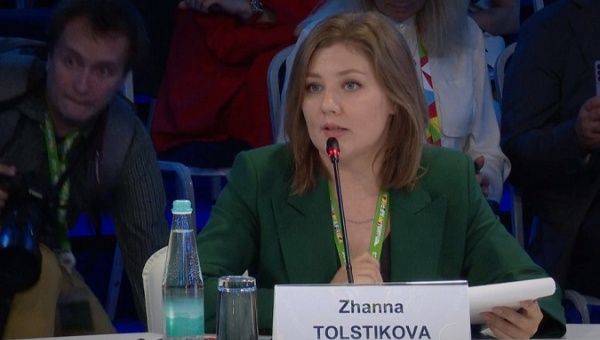
TV BRICS CEO Janna Tolstikova, July 27, 2023. | Photo: TV BRICS
Published 28 July 2023
Participants discussed the issues of modernisation and improvement of infrastructure and the introduction of innovative approaches
On Thursday, on the margins of the second Russia-Africa Economic and Humanitarian Forum in St. Petersburg, a panel session entitled "Infrastructural Development, Innovations and Comfortable Urban Environment" was held.
The session participants discussed the issues of modernisation and improvement of infrastructure, introduction of innovative approaches and technologies. They also considered measures to create a favourable environment for business and attract foreign investors, contributing to the sustainable development of cities in both regions.
Janna Tolstikova, CEO of TV BRICS, spoke about the role of the media network in popularising innovations to create a comfortable urban environment.
"Today, TV BRICS has more than 50 media partners in BRICS, Africa, Eurasia and Latin America. We work with our partners on the principle of information exchange. Thanks to our cooperation with media outlets in Africa, we receive high-quality journalistic information about the state of modern life in these countries. We translate this information into different languages - Russian, Portuguese and Chinese, and place materials in the national media of the "five" countries. The same thing works in reverse. This is how we tell about modern Russia on the media platforms of African countries" Tolstikova said.
"Of course, infrastructural development, innovation and comfortable environment are the topics that we as an international information hub pay special attention, by facilitating the exchange of views and experiences on sustainable development of Russian and African cities," she added.
Janna Tolstikova said that TV BRICS cooperates with the Zimbabwean media, which focuses, among other things, on the issues of national housing construction. Zimbabwe's new housing policy was adopted in 2021, with a focus on providing comfortable, affordable and quality housing for different segments of the population, as well as developing inclusive cities and human settlements and creating smart cities, which fully correlates with the African Union's 2063 Agenda and the UN Sustainable Development Goals, which Zimbabwe also supports.
"We are developing smart cities, we have advanced technology and we want to provide people with not just housing but multifunctional housing. We want people to live there comfortably, we want them to be able to work, we want the housing to be in an accessible location. We have a system like the Russian Federation that helps people to improve their housing conditions," said Joy Makumbe, secretary in the Housing Ministry of Zimbabwe.
In his turn, Deputy Minister of Construction, Housing and Utilities of the Russian Federation Nikita Stasishin explained the current state of the construction sector in Russia and what experience the Russian Federation is ready to share with Africa:
"On the instructions of the President, an infrastructure menu has been launched. This is a huge amount of money that goes to modernise engineering, transport, utilities and social infrastructure. Our country's team in terms of urbanisation of the building block, comfortable urban environment, smart city and transformation of the housing and utilities sector is working towards one goal - to change the quality of life of our citizens. But in order to change in practice, we must first do a huge amount of work - normative, scientific, and take advantage of the world's best practices in order to make standards."
"At the same time, we have a huge scientific base with technical solutions for the development of agglomeration of cities with millions of inhabitants, as well as single-industry towns and small cities. This is something we could share with African countries," he noted.
Yuri Grishan, the Mayor of Magadan, told about the role of public-private partnership in the development of the city infrastructure:
"Thanks to "DOM.RF" funding, we have conducted a lot of research on civil society, it helped us attract a lot of investors to Magadan. In addition to the fact that we receive state funding from various sources and banking structures, we have 14 concession agreements being implemented on the territory of the city of Magadan. Among them are infrastructure projects, schools, kindergartens, sports complexes and so on. This has become possible due to the fact that investors understand what will happen on this territory and that the money they invest, they invest with benefit. We want to create the same conditions as in tourist cities in Russia."
"In Tanzania, the same as in Magadan, the gold is mined and for many years we have been supplying there the washing equipment, because the method of gold mining is the same. We are ready to renew the contacts that we had in the field of construction as well," added the mayor of the Magadan city.
Tafadzwa Muguti, Commissioner of the Presidential Administration of the Republic of Zimbabwe for the Development of Harare Province, noted the peculiarities of the province in terms of transport infrastructure development and spoke about the prospects for cooperation with Russia in this area:
"One of the opportunities to improve transport infrastructure is to intensify partnership relations with the Russian Federation. Thanks to cooperation with Russian cities we could create new master plans for the development of municipalities".
The panel discussion gave the experts an opportunity to share best practices, highlight modern requirements for infrastructure development and consider innovative approaches that can make cities more convenient and environmentally sustainable. The second Russia-Africa Forum is taking place in St. Petersburg on 27-28 July.
https://www.telesurenglish.net/news/Rus ... -0018.html
******
Niger became a hostage of the anti-Russian policy of the West
July 29, 20:08
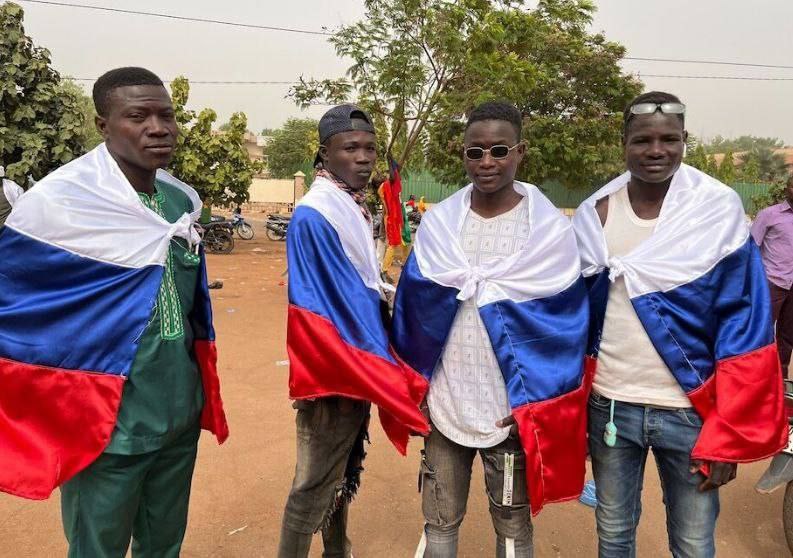
Niger became a hostage of the anti-Russian policy of the West
The army of Niger went over to the side of the rebels, and President Mohamed Bazum had little chance of retaining power. This is a big blow for Paris, since the supply of uranium ore from these places is of critical importance to it. It was because of France that Niger went against Russia. Because of her, he is so unhappy.
The President of the Republic of Niger, Mohamed Bazum, could now admire the Palace Square in St. Petersburg, but instead he was taken hostage by armed rebels and removed from the leadership of the country. And he can thank official Paris for this, since Niger refused to participate in the Russia-Africa summit under pressure from France, its permanent partner, or, to put it better, the overseer.
They have had an unhealthy relationship since the end of the 19th century, when the French decided to conquer the Lake Chad basin and sent there the so-called Central African Expedition under the command of Captain Paul Voulet. As a method of colonization, he chose robbery and massacres - atrocities of such a level that a scandal broke out in Paris, and the thug was rushed to be fired. Voule shot the messenger with the order to remove him, mutinied with the intention of becoming the head of a new African empire, but was eventually killed by the Senegalese in the French service from among the expedition members.
Shortly before this, Voule had ordered the execution of 150 women and children in retaliation for the deaths of two soldiers. This nightmarish incident, among many others, explains the continued anti-colonial sentiment in Niger. This piece was not easy for the French, but they achieved their goal - and they still have not let it out of their teeth.
When it became bad manners to have colonies in the world, President Charles de Gaulle decided to make them an autonomy within France. The predominantly illiterate population of Niger allegedly voted for this in a referendum, after which supporters of independence were expelled from there, but only two years later, in 1960, independence was nevertheless proclaimed - autonomy seemed to be not enough for local leaders.
The new state was headed by Amani Diori, a former member of the French parliament from among the supporters of autonomy. He quickly established an authoritarian regime and tied his homeland with allied treaties with Paris. The income from French uranium mining was enough for the elite, the rest of the population lived in impenetrable poverty, and the Diori regime, carried away mainly by foreign policy, controlled for the most part only the capital and its environs - other territories existed as subsistence farming under the yoke of local leaders.
In 1974, the regime fell, and Niger embarked on a planid widespread in Africa - from one military coup to another. In almost 65 years of formal independence, there have been seven constitutions and only one peaceful transfer of power from president to president - that same Mohamed Bazum in April 2021.
But even this "historical record" at the last moment was almost covered with a copper basin: another, but unsuccessful attempt at a military coup took place two days before Bazum's inauguration.
Such an intense struggle for power does not go in vain: ranking fifth in the world in uranium mining, Niger is one of the least developed countries in the world, and in some years it set a global anti-record in the so-called Human Development Index. The reason is not only in local poverty, but also in endemic illiteracy.
This situation is convenient for the French, who hooked the authorities of Niger (all authorities, in turn) on their subsidies and technologies. The country's only wealth is uranium, and extracting profit from it is inaccessible to the local economy due to underdevelopment. So the French who speak the same (French) language with the elite are monopolists there, who can open any door with their foot.
If the people of Niger are less busy with everyday survival, they will finally be able to master reading and question the fairness of the distribution of wealth in the country. And also about why everything is still commanded by white people, whose ancestors carried out ethnic cleansing in these places.
Niger's dependence on Paris is also strong because it is mutual. The energy basis of France is not gas, as in Germany, but a peaceful atom. Niger gives the French up to 40% of the required uranium. And besides, he sheltered a French military group expelled from neighboring Mali and Burkina Faso.
There, too, life is from coup to coup, and at this historical stage, the new authorities decided to get rid of French influence and unambiguously showed the colonialists the door.
It is believed that the textbook Wagner PMC, which later occupied the French barracks, took part in this. The French media fantasize about the participation of Wagner in the Nigerian coup, too, which in their case resembles paranoia, although we have to admit that the founder of this PMC, Yevgeny Prigozhin, knows how to surprise.
Be that as it may, in fact, many expect from Niger that he will now go over to the anti-French Fronde, and that he will begin to take invitations to Russian summits more seriously. After all, he really has something to hate France for.
But it is unfair to lay the blame for the country's plight on the French alone. The constant struggle for power and resources in Niger is provoked by many things, up to the ethnic picture on the ground.
Slightly more than half of the population belong to the Hausa people. However, the Djerma are considered the state-forming people: they are less than 20%, but they are the absolute majority in the capital, the city of Niamey, and its environs. The administrative center of the country was subordinate to President Diori even during the decline of his power, also because he is also a local germa.
To the north live nomads - the Tuareg, who regularly raise uprisings, as well as the Arabs. They are less than 2%, but their number includes the now overthrown Bazum. That is, the president of the country is a stronghold of French influence in Africa, the black majority of which was persecuted on a racial basis, white by local standards. Such is BLM.
The forecast for the future of Bazum is quite unambiguous - he will not be president. The day that for him and his French friends was supposed to be the day of the boycott of the Russia-Africa summit, became for Niger the day of the change of power. If on the first day there was still a theoretical scenario according to which the army would recapture the president from the rebels from among his personal guards, then on Thursday the military command announced that it would join the junta in order to “prevent bloodshed.”
It is more difficult with the future of Niger as a whole. Despite all the local storms, the French usually managed to keep this territory under their control, since the cost of losing for them is high - much higher than the geopolitical defeats in Burkina Faso or Mali, for which Emmanuel Macron blames Russia.
However, this is Macron's self-defense - to blame Russia. His active and inactive participation in the collapse of French influence in Africa is much more significant. With such a "talented" leadership, Niger can also be lost.
Perhaps this is just as inevitable a loss as the loss of Algeria, reflected back by General de Gaulle (the pride of the French empire is now one of the most pro-Russian countries in Africa, and openly pro-Russian at that). Because France is “no longer the same”, but before that, too, was a damned bastard.
When Paul Voulet united the French colonies in West Africa with fire and sword, one of the tribes that challenged him was the Aznu tribe, led by Queen Sarraunia. The locals considered her a witch.
The people of Sarraunia lost the battle imposed on the invaders rather ingloriously. Having fled, the queen of the French must have cursed, otherwise what a witch she is. The locals know better - to believe in it or not, but a political marriage with Paris cannot be happy - a hundred and thirty years of guarantee.
(c) D. Bavyrin
https://www.discred.ru/2023/07/28/glava ... ta-rossii/ - zinc
https://colonelcassad.livejournal.com/8529631.html
Google Translator
******
General Abdourahamane Tchiani Declared New Niger’s President

General Abdourahamane Tchiani, proclaimed head of the National Council for the Safeguarding of the Homeland. Jul. 28, 2023. | Photo: Twitter/@Halbeeg_News
Published 28 July 2023
A group of soldiers of the Presidential Guard announced late on July 26 to have overthrown President Mohamed Bazoum.
The head of Niger's Presidential Guard, General Abdourahamane Tchiani, has proclaimed himself the new president of Niger on Friday, according to state television.
Tchiani appeared on the country's state-run Tele Sahel channel, declaring himself head of the National Council for the Safeguarding of the Homeland, the country's highest body of authority.
This comes after a group of soldiers belonging to the Presidential Guard announced late on July 26 to have overthrown President Mohamed Bazoum. They announced the closure of the national borders, the establishment of a curfew, the suspension of the Constitution and the banning of political parties.
The coup d'état against Bazoum is in response to the "continued deterioration of the security situation and poor economic and social governance," said Major Colonel Amadou Abdramane.
My dear compatriots, receive my first message to the nation as President of CNSP and Head of State of Niger. We must all fight together to save our beloved homeland. Général Abdourahmane Tchiani.
According to Tchiani, who led the presidential guard since 2011, "the harsh reality of insecurity in Niger, experienced by our defense forces and working populations, with its toll of deaths, displacements, humiliations and frustrations, reminds us daily of this stark reality."
The ringleaders of the coup issued the five-article "Order 2023-01 of July 28," including the suspension of the Constitution of November 25, 2010, and the dissolution of its institutions.
Bazoum was held at the government palace by the Presidential Guard as part of the coup actions. He was elected in Niger's first democratic transition of power in 2021.
https://www.telesurenglish.net/news/Gen ... -0027.html
******
Russia-Africa Summit
POSTED BY @NSANZO ⋅ 07/30/2023
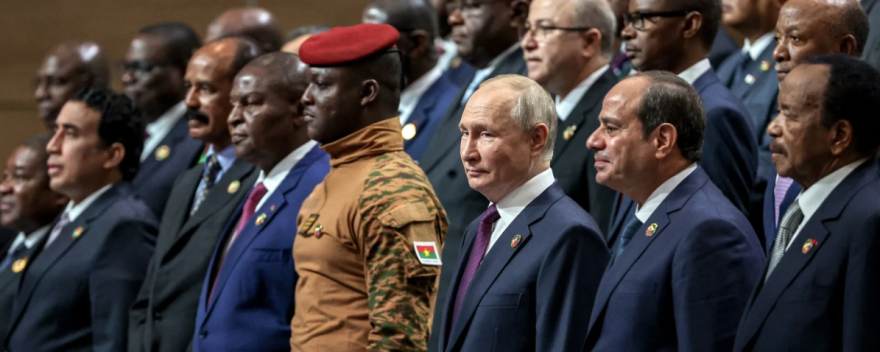
The Russia-Africa summit with which Moscow has sought to stage the normality despite the war. Of the continental countries, only four have been absent: Niger, immersed in a coup at the moment, Botswana, Kenya and Lesotho. In the same way as with Xi Jinping's visit, which did not entail the signing of any major agreement but did confirm the unaltered continuation of a priority relationship, on this occasion Russia also had a political objective. short-term losses,dissidences in the official position of Brussels in countries like Bulgaria or even in others apparently less likely like Croatia -, Moscow has been forced to look at a much broader map of the world than the one to which it had become accustomed in recent decades.
In economic terms, Russia has so far maintained a part of its direct economic relations with the countries of the European Union, which have not completely abandoned the direct purchase of products such as gas, especially liquefied gas, from Moscow. However, Russia is aware that European countries are ready to look for alternatives to Russian raw materials even at the cost of higher prices. Hence, Moscow has turned to Asia as a priority market for its two most important products, gas and oil. The growth of trade with China under preferential conditions was to be expected, but India has also joined this increase, providing Russia with a lifeline that has allowed it to maintain, indirectly and guaranteeing benefits to intermediaries, additional trade with European countries. The two great Asian continental powers have also been joined by Pakistan, a traditional customer of Saudi oil, which seeks to take advantage of the discounts that Russia is offering on its products to open new trade channels and deepen political relations even with historical opponents firmly established in the US bloc in the Cold War years.
In the case of Africa, the priority is not the economic relationship, but the political one. The growing importance of the continent, due to its demographic growth and its youth in the face of the aging of Western countries, have made it an important pole in the attempt to create a less hegemonic and more multipolar international order as Russia aspires to. “Africa is on the way to becoming a new center of power that the whole world has to take into account,” Vladimir Putin said in his speech. The respect shown by Russia to African countries, which is expected from diplomacy, contrasts with the treatment that various African leaders received a few weeks ago in Poland-Ukraine, when they found themselves detained and their passage to Ukraine delayed at the expense of the security of the President of South Africa, Cyril Ramaphosa, leader of the delegation seeking to mediate between kyiv and Moscow, was disarmed and searched. The growing role of Africa is not only in the formal speeches of the European presidents who receive them, but also in the actions of African leaders, who have stopped looking for solutions in the countries that once colonized them and have begun to openly and directly reject your implication. Proof of this were the difficulties suffered by Emmanuel Macron, accustomed to stellar receptions, on his last tour of what France continues to know as Françafrique .
Faced with this interventionism in the former colonies that European countries or the military omnipresence of the United States have repeatedly shown, Russia has been forced to recover part of Soviet diplomacy to present itself as an external force that seeks to support African countries to achieve the levels of power that would correspond to them due to their demographic weight. The attempt to relaunch political and economic relations with African countries has gained new momentum in the face of the loss of European friendships, but it is not born in a vacuum. To bring together the good number of African leaders that Russia has achieved this week in Saint Petersburg, Moscow has not created a new forum but has recovered the existing one, the Russia-Africa forum, which met in Sochi in 2019. Russia also has the historical baggage of Soviet support for anti-colonial struggles throughout the entire continent, a legacy practically forgotten since the 1990s, but which now does not hesitate to recover. Hence, the Friendship of Peoples University once again bears the name of Patrice Lumumba, eliminated by Yeltsin's Russia, and once again insists on the importance of these academic relations between the two continents.
In this context, it is not surprising that the Kremlin included on its official website the statements by Yoweri Museveni, president of Uganda, in which he mentioned two key moments in the fight against European colonialism: "one was the formation of the African National Congress in South Africa in 1912. That was the first time that Africans began to organize to liberate Africa. Then, in 1917, the communists took power in Russia and they were the first international group to support us." Despite the nervousness caused in the Russian authorities by any link with the communist past, it is these ties that are allowing relations to be relaunched that do not have to start practically from scratch, as is the case with Dmitro Kuleba. The reality is that, right now,
In economic terms, Russian capacity can in no way compete with China's, so Moscow can only make modest proposals. The main novelty at this week's summit was the massive cancellation of debt to African countries, some 21,000 million euros, a symbolic measure, but one that contributes, as far as possible, at least not to worsen the crisis of debt that has been created in recent years on the continent. Vladimir Putin also offered Russian grain at zero cost to six countries on the continent. Russia thus seeks to be seen as a country willing to contribute to guaranteeing food security despite the breakdown of the Ukrainian grain export agreement. As the Russian president recalled, Russian production significantly exceeds Ukrainian production,
However, it is clear that any war that involves key countries in the market for basic necessities affects development, so the priority is not to solve the consequences but the causes. In this sense, the response of some countries, led by the president of the African Union, is consistent with the position of the African delegation that visited kyiv and Moscow a few months ago. In his speech on Friday, Azali Assoumani said that the Russian proposal to compensate for the loss of Ukrainian grain is enough.
The main demand is that of a ceasefire, an integral part of the peace proposal that the delegation led by Cyril Ramaphosa presented in kyiv and Moscow, but which was only taken into account in Russia. Installed in the dynamics of seeing the war until the recovery of its 1991 borders as the only acceptable way out, Ukraine received the African proposal as one more of the many that it has no intention of evaluating.
Faced with the reception that the African authorities received in Moscow and the recognition of an honest proposal that does not seek its own interest but rather to help the Europeans to end the war, Ukraine maintained its usual line. African leaders were paraded by Bucha in an attempt to impose his position, which is based on repeating over and over again the idea that there is nothing to negotiate. And in later days, Mikhailo Podolyak denied the African position -especially after seeing that it had not changed after the visit to Ukraine- to affirm that African leaders "are not at that level", that is, that their place is not the to mediate in the European war.
Coherent is also the reaction to the Russian grain donation proposal. The problem is not that the quantities that are handled are not considered sufficient, but rather the African will to maintain economic relations with the rest of the countries, not live on donations. Hence the demand for the reopening of the grain corridor and that one of the points of the African peace proposal was precisely the increase in the continent's trade with both Russia and Ukraine. This idea was reflected in the intervention of Museveni, who wondered why his country, which sells the raw material, coffee in this case, obtains less income than a country like Germany, which only processes it. The president of Uganda insisted that his proposal to Russia and China, alternatives to the West,
The summit, with limited economic content, has served to relaunch and consolidate Russia's relations with the countries with which it has traditionally maintained cordial relations, but also with the continent in general. Perhaps the most important statement was made by Vladimir Putin on Thursday when he promised Russian support to guarantee the presence of the African Union as a permanent member of the G20, a forum chosen by Russia, China, India and other emerging countries to achieve a more multipolar world and in that US hegemony continues to decline. For this, both because of its demographic weight and numerical importance in institutions such as the United Nations, especially in the General Assembly.
https://slavyangrad.es/2023/07/30/cumbr ... more-27826
Google Translator
